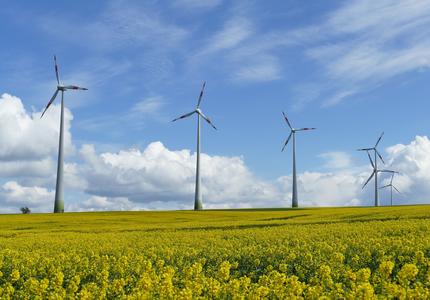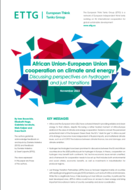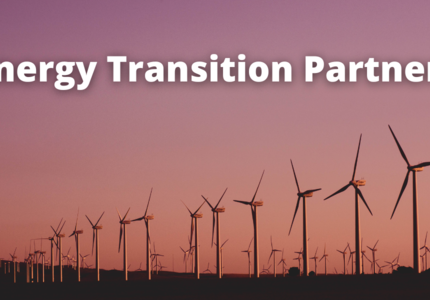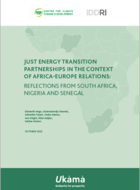Faced with the energy price crisis, the French government has chosen to freeze gas and electricity tariffs for all consumers. With a public cost of 20 billion euros for 2022 alone, this price-based approach raises important questions of budgetary sustainability. This is especially true as it risks overshadowing the two main issues at stake in tackling the crisis: proposing effective and fair measures targeted at households and businesses that are most vulnerable to this price shock, which affects both energy and food products; and massively accelerating energy renovation policies, which are the only way to reduce our dependence on fossil fuels in the buildings sector.
Freezing prices does not meet the needs of the most vulnerable
Recent political action on prices, including the freezing of gas and electricity tariffs and the 15 euro cent per litre reduction in fuel prices, has the advantage of speed and simplicity. But this comes at considerable cost. Firstly, on the financial level: public spending since the end of 2021 towards addressing rising energy prices now amounts to more than 30 billion euros, i.e. the same amount as public spending on climate in 2021 (including the recovery plan) according to I4CE figures1 .
Secondly, from a social perspective, support through price cuts amounts to dedicating more financial resources to the most affluent households, as they consume more energy, and thus ignores the principle of equity where the greatest support is targeted towards the poorest and most vulnerable. An increase of €100 in the energy voucher and an inflation allowance of €100 (for households with incomes below €2,000 a month) have been introduced for the poorest households, but these measures are insufficient to protect the most vulnerable, as illustrated in the following two examples. A low-income household with a poorly insulated 100 m² living space, with “F” rated gas heating according to the European energy label (i.e., 330 kWh per m² per year), faced an energy cost increase of more than €700 in October 2021 (price freeze implementation date) compared to January 2019, and more than €1,200 compared to January 2021. To cope with this rise, the household has received support amounting to €200 via the energy voucher and the inflation allowance.
For a second example we can consider a person on a low income who makes a daily commute of 50 km, adding up to 1,000 km a month. If we assume a fuel consumption of 7 litres per 100 km, then the increase in diesel prices amounts to a little over €500 for the year, while the reduction of 15 euro cents per litre for 4 months saves him or her a total of €42, or €126 for 12 months if the measure is extended for a year.
Where does energy renovation fit into the resilience plan?
In the wake of the European “REPowerEU” initiative, on March 16, the French government announced its Economic and Social Resilience Plan, aimed at responding to the war in Ukraine and the desire, among other things, to rapidly reduce dependency on fossil fuel imports from Russia. As shown in a recent IDDRI policy brief, restrictive measures which have a limited short-term effect can be adopted to significantly reduce this dependency, but the main lever lies in accelerating strategies for the structural reduction of energy consumption, first and foremost the energy renovation of buildings.
In terms of energy renovation, the main announcement for households concerns a €1,000 bonus in addition to the MaPrimeRénov aid, which targets the replacement of gas and oil boilers.
Although constituting an additional signal to encourage energy renovations, this measure nevertheless runs the risk of aggravating the main existing flaw in the French support system. Indeed, as mentioned in various recent evaluation reports (including the High Council on Climate in 2020, the National Assembly in March 2021, the Cour des Comptes in September 2021, and the Committee for the evaluation of the French Recovery Plan in October 2021), while the MaPrimeRénov scheme has indeed scaled up the number of projects, it has done so by systematically favouring individual actions (86% of applications), particularly those involving boiler replacement, whereas “comprehensive renovations” now account for barely 0.1% of applications.
Supporting individual actions is not a long-term solution
However, replacing boilers without improving insulation in buildings can be counterproductive in the long term as regards improving household comfort, achieving real gains in energy performance and reductions in greenhouse gas emissions, as well as reducing energy bills.
Given that this is a “resilience” plan, in a context of geopolitical crisis and rising energy prices, it is regrettable that efforts to accelerate energy renovation policies largely neglect the scaling up of comprehensive and efficient renovations to achieve the “low consumption level” standard (“Bâtiment basse consommation” - BBC), which in fact constitutes the main lever for sustainably reducing the vulnerability of households to rising energy prices. This is despite the fact that the implementation of carbon neutrality requires a building stock where all buildings are renovated to BBC or similar standards by 2050 (Article L100-4 of the Energy Code summarizing the objectives of the national energy policy).
As an illustration, the latest I4CE Landscape of climate finance in France indicates an additional investment need of €34 billion over 3 years (2021-2023) specifically earmarked for efficient and comprehensive renovations. While the scenario of the Rénovons alliance indicates that an ambitious pathway for BBC renovations of poorly insulated buildings in France would require 3.2 billion euros of public funding annually, which is barely 10% of the funds already committed in response to the price crisis.
Energy renovation and Russian gas imports: a close relationship
A retrospective approach provides another way of demonstrating the importance of energy renovation in reducing our dependence on imported fossil fuels, in this case Russian gas. The 2008 Grenelle de l'environnement, for example, strongly emphasized the importance of energy efficiency in buildings as the main lever of the energy transition, setting two structural objectives:
- a 38% reduction in energy consumption in existing buildings by 2020;
- 400,000 “major” renovations annually.
If these two targets had been met over the last 10 years, natural gas consumption could have been reduced by about 100 TWh, equivalent to French imports of Russian natural gas in 2019. Indeed, reducing energy consumption in buildings by 38% is equivalent to just over 200 TWh. A 50% saving on gas-heated buildings would result in a 100 TWh reduction. Similarly, a major energy renovation (considered here as a renovation that once complete reduces consumption by a factor of 4) would enable savings of 20 to 25 MWh per month, i.e., savings of up to 10 TWh annually, and up to 100 TWh over 10 years.
Aligning energy renovation policies with the performance objective
Whether to address the current geopolitical crisis or to combat global warming, the policy of “small gestures” in the field of energy renovation is no longer sufficient. The current urgency means that we cannot waste another decade.
All current decarbonization scenarios converge on the key importance of massively increasing energy efficiency renovations to achieve carbon neutrality. The issue of the obstacles to be removed and the levers to be applied2 to structure and scale up this market, which is still in its infancy in France, should therefore be addressed without delay.
Moreover, the recently launched revision of the Multiannual Energy Programme should, for the first time, include “a roadmap for the energy renovation of buildings, specifying the methods of implementation (...) of the objective of renovating buildings to BBC or similar standards” (Article 1 of the 2019 climate-energy law).
This is a major programme for the next French president.
- 1Including the €100 increase in the energy voucher for the 6 million beneficiaries, the inflation allowance for 38 million French people, the cost of the tariff freeze on regulated electricity and gas tariffs, the 15 euro cent per litre reduction for fuels, aid to businesses and the €1,000 increase in MaprimeRénov for boiler changes.
- 2In this respect, it is worth noting the creation, under the Climate & Resilience Act of August 22, 2021, of a Public Service for the energy performance of housing, called France Renov' since January 2022, as well as the conditioning of aid to certifications. In addition, the above-mentioned reports (High Council on Climate, National Assembly, Cour des Comptes, Committee for the evaluation of the French Recovery Plan) already contain numerous proposals and recommendations for improving energy renovation policies.






